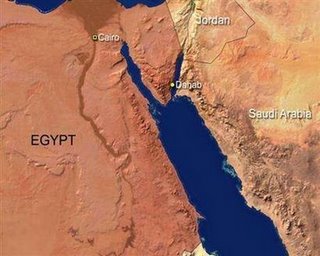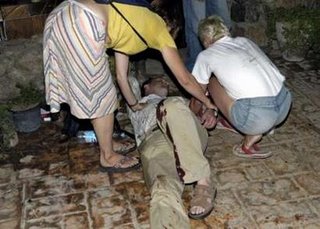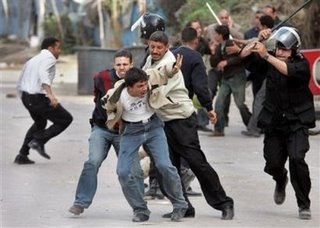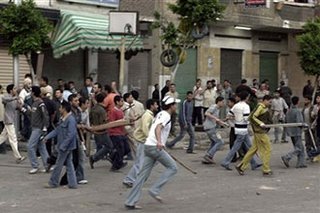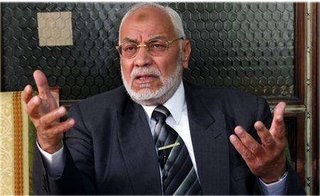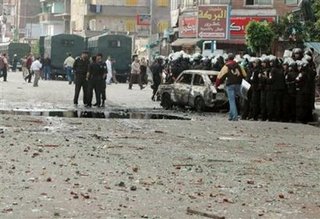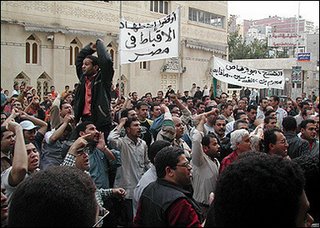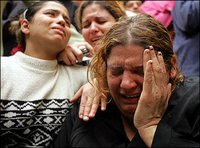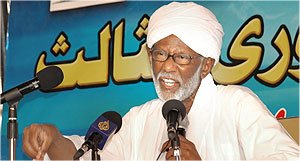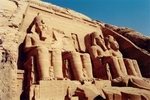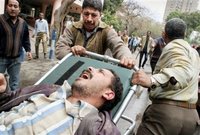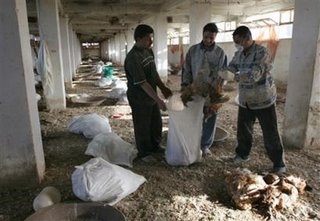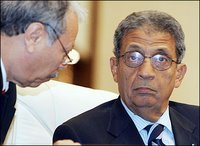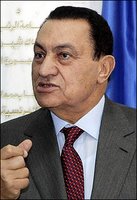
In May, a decision has to be made on the renewal of the Emergency Law, applied in Egypt since 1981 after the assassination of President Anwar Al Sadat. Emergency laws maintained an iron grip on Egypt’s political life and freedoms under President Hosni Mubarak who has been in power since 1981. The President remained in office for the past quarter of a century through a yes/no referendum with a 99% yes results. Only last year, he ran in multi-candidacy presidential elections and he was an inevitable pre-announced winner for the office of the President.
The presidential and the legislative elections were true setbacks for the march of freedom in Egypt and the Middle East. The expected pre-announced results of the presidential elections and the attacks of security and police forces on the voters and the supervising judges were evidence to electoral processes that do not enjoy any transparency or credibility.
Emergency laws were meant to curb the danger of the Islamists or the banned Muslim Brotherhood who were accused of killing President Sadat. In 1990s, Islamists in Egypt committed abhorrent crimes against Egyptians and foreigners in Luxor and Cairo when terrorists opened fire on innocent visiting foreigners and Egyptians working in tourism.
In 2004 and 2005, another two repulsive attacks targeted two important tourist cities in Egypt; Sharm El Sheikh and Taba on the Red Sea where again many Egyptians and foreigners lost their lives.
Apparently, emergency laws did not succeed in curbing the evil of Islamists and terrorists in Egypt. Islamists and terrorism succeeded in targeting important cities and sites in Egypt resulting in the death of dozens.
Islamists and terrorism revived and survived under the oppressive emergency law to all political freedoms. The right to congregation, right to free press, the hard grip of the executive power over the judiciary, the right to establishment of political parties and the lack of freedom for the civil society were all reasons to the flourishing and the victory of terrorism over the freedoms that should be enjoyed by the individuals in an open society.
In 2006, Islamists from the “banned” Muslim brotherhood rose from their place under the shadow to speak on behalf of Egyptians in Parliament after they won 88 seats that represent around 20%.
The claimed and the declared reason for applying emergency laws was banning Islamists after killing President Sadat, however in 2005, Islamists ran in the Egyptian legislative elections that took them to the parliament. The law legalized their “banned” activities to draft legislations.
The world and the international community until this day did not agree on a definition for terrorism, however, the regime of Egypt wants to draft an anti-terror law. The law has to draft a definition. Will the Egyptian regime be able to track terrorists outside the Egyptian territories as the U.S.? Does the regime in Egypt has information that terrorists are operating in Egypt, knowing that Egypt was not transparent about the investigation of the Taba and Sharm El Sheikh attacks that led to the arrest of more than 3000 Egyptians as suspects. Should we understand that Egyptian regime reached a definition for terrorism?
Few days ago, the regime exploded a bubble saying that the ministry of the interior arrested a terrorist organization operating in Egypt and was planning to blow up gas pipelines and tourist sites. Personally, I am not buying it. It is true we are not living in a safe world anymore to rule out the presence or the existence of terrorist networks, however the timing is convenient for renewing the emergency law.
The President said in the official media that the time is not appropriate for lifting the emergency laws. The reason is that time is too short to draft a new anti-terror law, as if the expiry date for the emergency law was only known two weeks ago. He said the new law will take no less than two years. This new law should replace the current emergency law.
Local or municipality elections were postponed for two years because a new law has to be drafted and the president said the time is not convenient and too short to draft it before the local election that was supposed to take place in April.
International pressure on Egypt led to two suspicious elections in 2005, however the Egyptian regime cannot find a better to card to play now other than procrastinating legislations that either can ease political life like local elections and decentralize or draft a replacement to a dreadful law like the emergency law that makes every living Egyptian citizen a suspect and subject to detention.
It is inevitable that emergency law will be renewed in Egypt next month. In 2003, the law was renewed to combat terrorism and narcotics. I wonder what will be the reason for renewing the emergency law in 2006. The past two decades unfortunately answered this question; strengthening Islamists that found their way to parliament and beating and weakening sincere reformists until diminishing them as an unwelcomed phenomenon.


